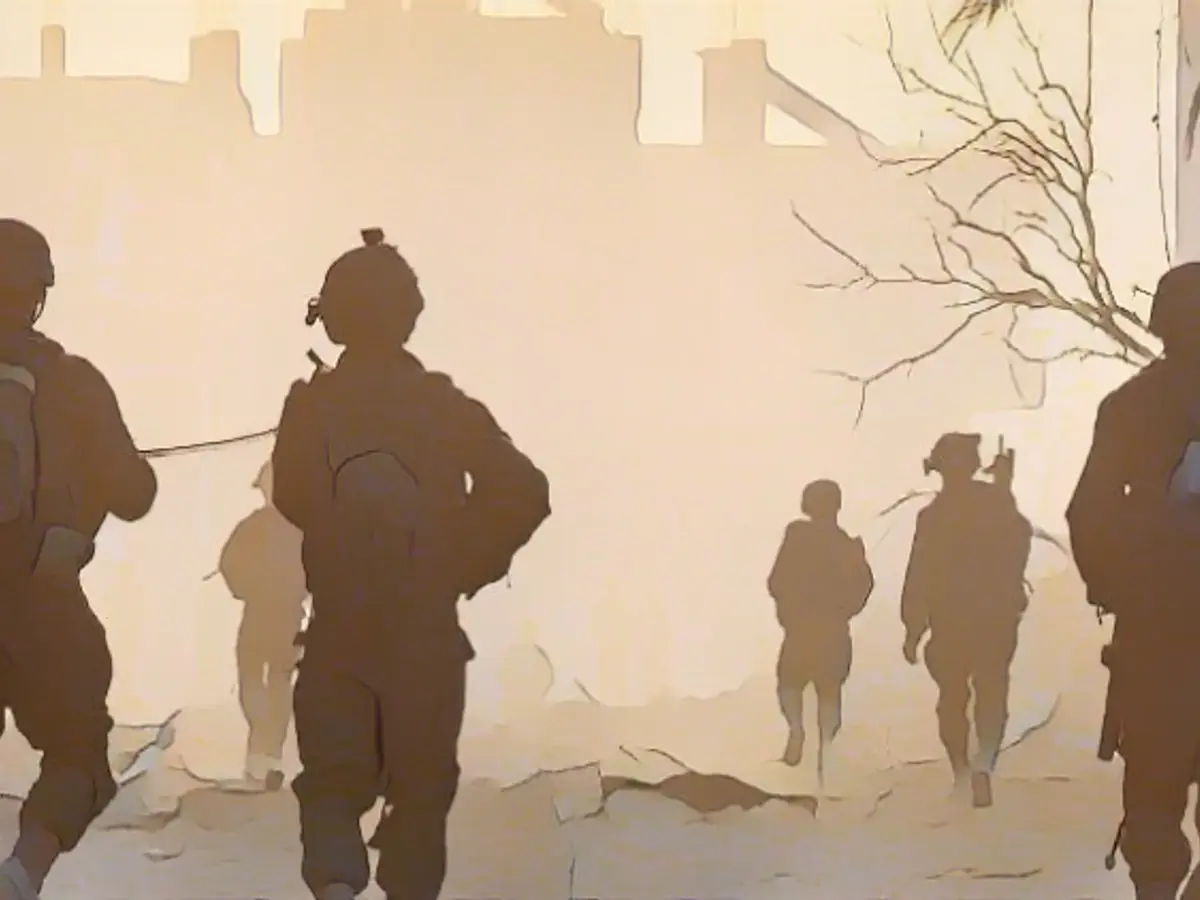Israel's economy groans under the consequences of war
Daily rocket alarms, many fighting in Gaza. The effects of the war can be felt everywhere in Israel. People are not working in their businesses, but have been called up for military service as reservists. The construction industry, tourism and gastronomy are suffering the most.
Explosion-proof doors from Rav-Bariach Industries are in particularly high demand in Israel these days - including at the company itself in the city of Ashkelon. While the employees of Israel's largest manufacturer of security doors continue to assemble high-performance locks on the factory floor around six weeks after the start of the war, a shrill rocket alarm interrupts their usual activities.
"It's part of our reality," says Managing Director Idan Zu-Aretz, while his employees seek refuge in the shelter. When the wailing of the sirens subsides, the colleagues return to the assembly line and resume their work. Until the next rocket alarm.
Disruptions like this as a result of the war between Israel and the radical Islamic group Hamas are commonplace in Israel. However, they are now having an increasing impact on the otherwise strong economy of the country of nine million inhabitants. The company in Ashkelon is also feeling the effects.
The city south of Tel Aviv is just ten kilometers from the Gaza Strip. From there, hundreds of fighters from Hamas, classified as a terrorist organization by the USA and the EU, entered Israel on 7 October and committed atrocities against the civilian population. In response, Israel began massive airstrikes on targets in the Gaza Strip, and later ground troops also entered the Palestinian territory ruled by the Islamists.
Since the outbreak of the war, almost daily rocket fire from Hamas and its defense by the Israeli Iron Dome have determined the work processes at Rav-Bariach. Three days after the Hamas attack, the worst since the founding of the State of Israel in 1948, a rocket hit the roof of the factory. No one was injured.
Labor shortage everywhere
"In the first weeks of the war, there were many more alarms," said the company's head of international development, Ravid Brosch. However, as the initial shock of the massacres perpetrated by Hamas began to subside, a new and serious problem emerged: the lack of manpower.
At least 125,000 inhabitants of the country were forced to leave their homes. People from the south fled from villages completely destroyed by Hamas, such as Beeri, Kfar Aza and Nir Oz near the Gaza Strip. In the north, numerous villages on the border with Lebanon were also evacuated due to the increasingly frequent attacks by the pro-Iranian Hezbollah militia.
In addition, more than 360,000 army reservists have now been called up - with dramatic consequences for the economy. Because in a country with only nine million people, every available worker is needed, including at Rav-Bariach.
"The situation is difficult at the moment, mainly because we are short of hands," says Managing Director Zu-Aretz. Many of the employees are still missing. Some are still with the army, others are still in other places after being evacuated and are therefore unable to come to work. He estimates that the company currently has less than two thirds of its 600 employees available.
Construction sector hardest hit
According to economist Benjamin Bental, people in Israel have been used to carrying on in a state of war since the state was founded 75 years ago. However, compared to the current war, "all Israeli-Arab conflicts in recent years have been relatively insignificant", says the researcher from the Israeli think tank Taub Center.
According to him, many sectors are affected, some more than others. The construction sector, for example, is largely "blocked" due to its dependence on Palestinian labor. Residents of the Gaza Strip had their work permits revoked after the start of the war.
Israel's important tourism and hospitality sectors are also suffering from the consequences of the war. The usually busy cafés, stores and restaurants are open, but emptier than usual. Many bars and clubs remain closed. Instead of holidaymakers, many hotels and kibbutzes in the country are now accommodating internally displaced persons traumatized by the war.
The change in people's everyday behavior in Israel is also having an impact on their purchasing power: According to economist Bental, credit card transactions fell by ten percent overall after October 7, and by as much as 20 percent after the start of the Israeli ground offensive in the Gaza Strip.
Economic institutes lower forecast
According to him, the resilience of the hitherto booming high-tech sector is now the most important factor. With their contribution of 18%, the innovative start-up companies located primarily around the coastal metropolis of Tel Aviv generate almost a fifth of Israel's gross domestic product. Many economic institutes have lowered their growth forecasts for Israel for 2023 and 2024, not least due to high military spending as a result of the war.
The Israeli central bank, on the other hand, is forecasting growth of 2.8% for 2024. According to Bental, whether this optimism is justified depends on various factors. "If the situation on the northern border deteriorates, this will completely change the picture," he says. It is therefore "very difficult to assess what the consequences might be, except that it will be terrible".
Despite the challenging situation in the labor market due to military service reservists and evacuations, the gastronomy sector in Tel Aviv is still operational, albeit with fewer customers. (Labor market, Tel Aviv, Gastronomy)
The Israeli tourism industry has seen a decline in visitors since the start of the war, with many hotels accommodating internally displaced people instead. (Tourism industry, War, Hotels)
The economic growth forecasts for Israel in 2023 and 2024 have been lowered due to high military spending as a result of the Israel war. (Economic growth, Military spending, Israel war)
Source: www.ntv.de








